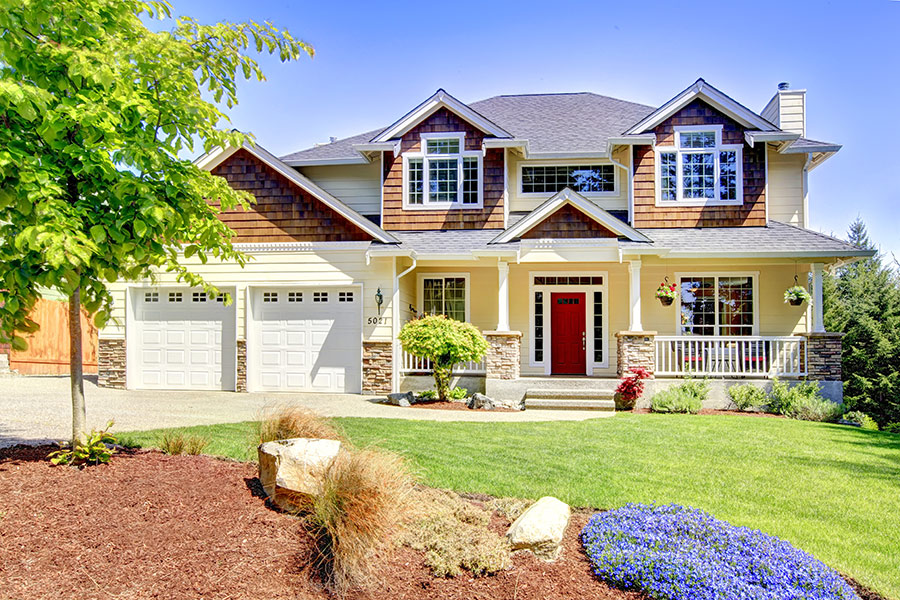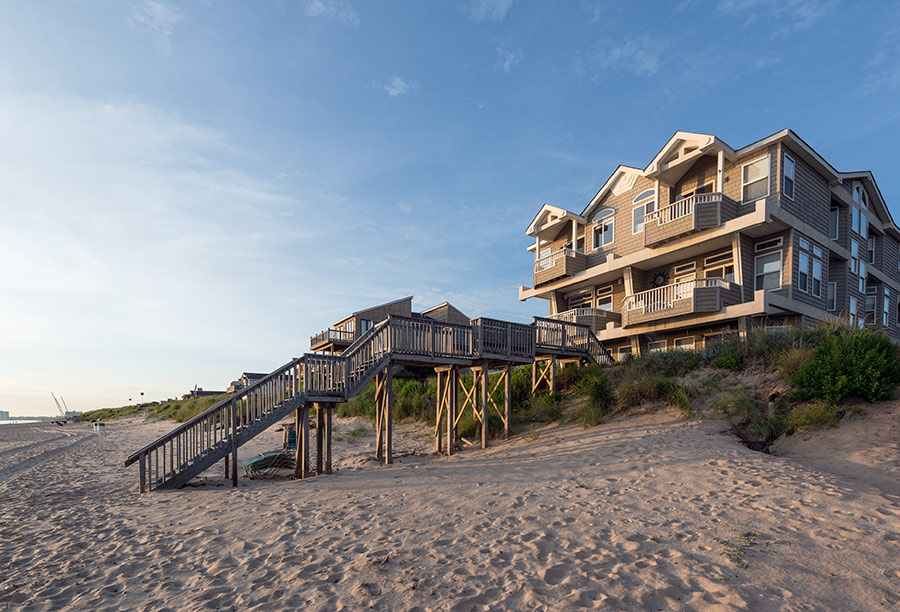
When you’re excited about vacation, it’s easy to forget about what you’re leaving behind. That is, until you get to the airport and wonder: Did I lock the door? Is the iron on? Is the garage door open? Secure your home before you leave so you can travel with maximum confidence and peace of mind. These home security tips for when you’re on vacation will help ensure that you won’t return to any unpleasant surprises.
1. Lock the doors and windows
Locking up might seem too obvious to mention, but an estimated 32% of burglars enter through unlocked doors. Windows are also weak points, so keep them closed and locked, even on the upper floors. A clever burglar can still access them, and an open window anywhere in the house might let in animals, rain or wind.
2. Clear out the mailbox
Mail piling up is a tip-off that no one’s home. Have a trusted neighbor, friend or housesitter collect your mail and keep it safely out of sight. Alternatively, you can request a temporary mail hold or mail forwarding through USPS.com. If you subscribe to any newspapers or subscription boxes, pause your delivery.
3. Use lights to create the illusion that someone’s home
Darkness is another trademark of an empty house — it also allows thieves to sneak in undetected. Nix that vulnerability by leaving a few lights on. Better yet, use motion detector lights to illuminate any intruders, or opt for smart lighting so you can set the lights to a timer and control them remotely.
4. Keep the yard maintained
Unless you have an extremely low-care yard, the lawn or garden will definitely need attention if you’re gone long enough. Make sure your landscaping professional continues working in your absence, and if you don’t have one, ask a neighbor or hire temporary help. If you live in a wintry climate, consider snow removal as well.
5. Leave a car in the driveway
Former burglars have reported that a vehicle in the driveway is a major deterrent in scoping out potential targets, because it almost always means that someone is home. Leave your (locked) car where people can see it, or see if a neighbor wants to park there.
6. Hide or lock up valuables
Easy-to-grab expensive items are extremely alluring to criminals. Conceal and secure the high-value items in both your home and garage. Lock up the most important things in a household safe. Remember that many thieves don’t draw the line at stealing physical goods — they also want to steal your identity. Lock up social security cards, financial information and any personal identification that you’re not bringing with you.
7. Don’t broadcast your plans online
Don’t post about your vacation on social media until after you return (and make sure your kids don’t either). By sharing travel plans, you’re advertising that your house will be empty. You can never be completely sure who sees that information, especially if you have many followers or a public profile.
8. Get your security system ready
If you have a home security system or security cameras, make them obvious to potential intruders. Cameras should be conspicuous so they can see and be seen. Post home security signs and decals prominently. If you don’t have a system, fake signs might be better than nothing. Also, make sure the security system and any automated devices you have are programmed correctly for your absence. If you have a professionally monitored system, inform the company that you’re going away. Make sure cameras, smoke detectors and any other components are on and in good working order, and that your smart home devices are programmed appropriately.
9. Adjust the thermostat
Adjust the thermostat to prevent the HVAC system from needlessly heating or cooling empty rooms. Programmable smart thermostats make this a lot easier, and you can remotely adjust them to comfortable temperatures for when you get back.
10. Prevent water damage
Some experts recommend turning off the house’s main water supply valve to prevent possible water damage from leaky pipes. This is a viable option if you live in a moderate climate and the house will be empty, but if you live in a cold area, or someone will be checking in while you’re gone, you probably want to leave the water on.
For more information on home insurance and protection, contact Lallis & Higgins Insurance.
Source: Safety.com




